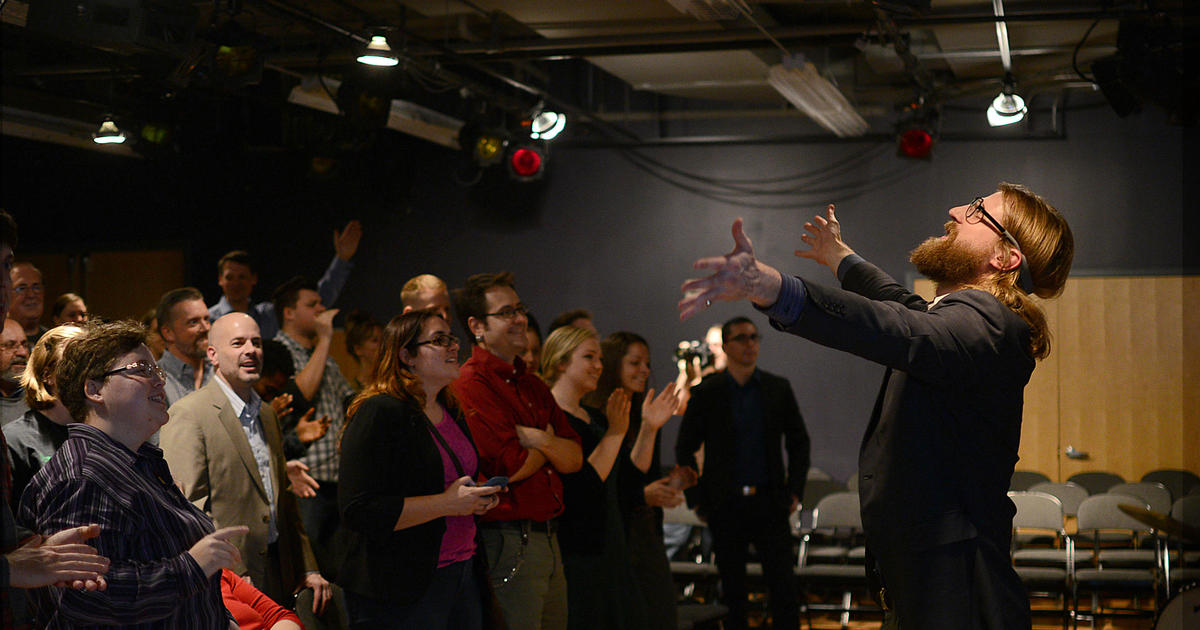Inside the "secular churches" that fill a need for some nonreligious Americans
Shared testimonies, collective singing, silent meditation and baptism rituals – these are all activities you might find at a Christian church service on a Sunday morning in the United States. But what would it look like if atheists were gathering to do these rituals instead?
Today, almost 30% of adults in the United States say they have no religious affiliation, and only half attend worship services regularly. But not all forms of church are on the decline – including "secular congregations," or what many call "atheist churches."
As a sociologist of religion who has spent the past 10 years studying nonreligious communities, I have found that atheist churches serve many of the same purposes as religious churches. Their growth is evidence that religious decline does not necessarily mean a decline in community, ritual or people's well-being.
Secular congregations often mimic religious organizations by using the language and structure of a "church," such as meeting on Sundays or hearing a member's "testimony," or by adapting religious language or practices in other ways.
What is an atheist church?
Secular congregations often mimic religious organizations by using the language and structure of a "church," such as meeting on Sundays or hearing a member's "testimony," or by adapting religious language or practices in other ways.
For example, there are a growing number of psychedelic churches, which cater to people looking to experience spirituality and ritual through drug use.
These secular congregations often appeal to atheists and other secular people, but their main purpose is not promoting atheism.
However, "atheist church" organizations like the Sunday Assembly and the Oasis explicitly celebrate atheists' identities and beliefs, even though not everyone who attends identifies as an atheist. Testimonies and activities extol values like rational thinking and materialist philosophies, which promote the idea that only physical matter exists.
There are also long-standing humanist and ethical communities that promote secular worldviews and provide secular ceremonies for major life transitions, like births, funerals and weddings. The American Humanist Association, for example, describes its values as "Good without a God." And for decades, Unitarian Universalist congregations, which grew out of Christian movements, have drawn on teachings from both religious and nonreligious traditions, without imposing specific creeds of their own.
But there has been a recent rise in secular congregations that explicitly mimic religious organizations and rituals to celebrate atheistic worldviews. Many have just one or two chapters, such as the Seattle Atheist Church and the North Texas Church of Freethought.
However, Sunday Assembly and the Oasis have networks with dozens of chapters, and Sunday Assembly has been dubbed the "first atheist mega-church". Many chapters of Sunday Assembly see hundreds of attendees at their services.
Whether the atheist church trend will continue remains to be seen. But such churches' recent growth is evidence that they can work much like religious organizations to build community, cultivate rituals and bolster well-being in a time of religious change.
continued

Inside the "secular churches" that fill a need for some nonreligious Americans
Atheist churches or secular congregations like Sunday Assembly typically borrow some of the language and structure of religious organizations.
